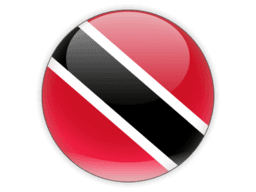
Regions of Trinidad and Tobago
Explore 15 regions
Cities of Trinidad and Tobago
Discover 22 cities across 15 regions
Borough of Arima(1)
Chaguanas(1)
Couva-Tabaquite-Talparo(3)
Diego Martin Regional Corporation(2)
Mayaro(1)
Penal/Debe(1)
Point Fortin(1)
Port of Spain(1)
Princes Town(1)
Sangre Grande Regional Corporation(1)
San Juan/Laventille(1)
Siparia Regional Corporation(1)
Tobago(1)
Tunapuna/Piarco(3)
Trinidad and Tobago is a twin-island country located in the southern Caribbean Sea, about 11 kilometers off the coast of Venezuela. The country is made up of two main islands: Trinidad, the larger of the two, and Tobago. The capital city, Port of Spain, is located on the island of Trinidad.
Trinidad and Tobago is known for its rich cultural heritage, which is reflected in its music, dance, and cuisine. The country is famous for its Carnival celebration, which takes place in February or March each year and is a colorful and lively event featuring music, dancing, and elaborate costumes.
The economy of Trinidad and Tobago is heavily dependent on the oil and gas industry, which accounts for a significant portion of the country's GDP. The country is also known for its production of natural gas and petrochemicals. Other important sectors include agriculture, tourism, and manufacturing.
English is the official language of Trinidad and Tobago, and the country's population is diverse, with people of African, Indian, European, and Chinese descent, among others. The country has a democratic system of government, with a president who serves as the head of state and a prime minister who serves as the head of government.
Tourism is an important industry in Trinidad and Tobago, with visitors coming to enjoy the country's beaches, nature reserves, and cultural attractions. Some of the most popular tourist destinations in Trinidad and Tobago include the Caroni Bird Sanctuary, the Asa Wright Nature Centre, and the Buccoo Reef.
Telephone Code
868
Local Emergency Phone
Ambulance: 990; Fire: 990; Police: 999
Vaccinations
An International Certificate of Vaccination for yellow fever is required for travelers arriving from countries with a risk of yellow fever transmission and for travelers having transited through the airport of a country with risk of yellow fever transmission. See WHO recommendations.
Climate
Tropical; rainy season (June to December)
Currency (Code)
Trinidad and Tobago dollars (TTD)
Electricity/Voltage/Plug Type(s)
115 V / 60 Hz / plug types(s): A, B
Major Languages
English, Trinidadian Creole English, Tobagonian Creole English, Caribbean Hindustani (a dialect of Hindi), Trinidadian Creole French, Spanish, Chinese
Major Religions
Protestant 32.1%, Roman Catholic 21.6%, Hindu 18.2%, Muslim 5%, Jehovah's Witness 1.5%
Potable Water
Opt for bottled water
International Driving Permit
Suggested; additionally, if you plan to drive in Trinidad and Tobago, you will need an Inter-American Driving Permit issued by the AAA
Road Driving Side
Left
Tourist Destinations
Port of Spain; Maracas Bay; Pigeon Point; Caroni Bird Sanctuary; Asa Wright Nature Centre & Lodge; Little Tobago Island; Mount Saint Benedict Monastery
Major Sports
Soccer, sailing, track and field, rugby
Cultural Practices
Avoid cursing or using foul language as it is considered a criminal offense.
Tipping Guidelines
In general, Trinidadians do not tip. A 10% service charge is often included at restaurants. If you really want to tip a particular waiter for exceptional service, make sure to physically give them the cash or leave it on the table where they can see it. Do not add it into the bill or credit card slip. Tipping private taxi drivers is at your discretion. Do not tip if you share a taxi. Tip a few dollars each round for the bartender.
Souvenirs
Sarongs and other hand-painted clothing; shell necklaces and beaded, gold, and silver jewelry; leather sandals, spices, woodcarvings, steel pan drums, handmade ceramic statues
Traditional Cuisine
Callaloo — a stew with a soup-like consistency; dasheen (a type of taro) leaves are cooked with a variety of herbs and spices; crabs are traditionally added, however, chicken or salted pork may also be used
Geography
Area
total: 5,128 sq km
land: 5,128 sq km
water: 0 sq km
Climate
tropical; rainy season (June to December)
Natural resources
petroleum, natural gas, asphalt
People and Society
Population
1,407,460 (2023 est.)
Ethnic groups
East Indian 35.4%, African descent 34.2%, mixed - other 15.3%, mixed - African/East Indian 7.7%, other 1.3%, unspecified 6.2% (2011 est.)
Languages
English (official), Trinidadian Creole English, Tobagonian Creole English, Caribbean Hindustani (a dialect of Hindi), Trinidadian Creole French, Spanish, Chinese
Religions
Protestant 32.1% (Pentecostal/Evangelical/Full Gospel 12%, Baptist 6.9%, Anglican 5.7%, Seventh Day Adventist 4.1%, Presbyterian/Congregational 2.5%, other Protestant 0.9%), Roman Catholic 21.6%, Hindu 18.2%, Muslim 5%, Jehovah's Witness 1.5%, other 8.4%, none 2.2%, unspecified 11.1% (2011 est.)
Population growth rate
0.12% (2023 est.)
Government
Government type
parliamentary republic
Capital
name: Port of Spain
Economy
Economic overview
high-income Caribbean island economy; predominantly driven by oil and gas (80% of exports); growing Venezuelan relations threaten US support; growing tourism; key regional finance hub; rising drug-related crime; high public debt; systemic corruption
Real GDP (purchasing power parity)
$35.147 billion (2021 est.)
Real GDP per capita
$23,000 (2021 est.)
Agricultural products
poultry, fruit, coconuts, citrus fruit, milk, plantains, maize, oranges, eggs, gourds
Industries
petroleum and petroleum products, liquefied natural gas, methanol, ammonia, urea, steel products, beverages, food processing, cement, cotton textiles
Exports
$11.467 billion (2021 est.)
Exports - partners
United States 33%, Guyana 9%, Spain 6%, China 6% (2019)
Exports - commodities
natural gas, industrial alcohols, crude petroleum, ammonia, iron products, refined petroleum (2019)
Imports
$8.592 billion (2021 est.)
Imports - partners
United States 40%, Guyana 19%, China 6% (2019)
Imports - commodities
refined petroleum, excavation machinery, shipping containers, iron, cars (2019)
International Airports in Trinidad and Tobago
Discover 2 major airports serving Trinidad and Tobago
Mark Trinidad and Tobago as Visited
Add Trinidad and Tobago to your personal travel map and track your journey around the world. Share your adventures and see your progress grow!